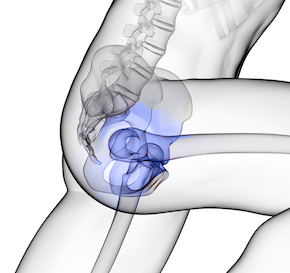Matthias' approach to practice
Matthias takes a whole person approach to finding the right solution for each patient
Before you make any decisions about your health, you need clear, unbiased and understandable information. Mr Russ will talk to you in plain language about your options.
Mr Russ is committed to personalising surgical decisions. This means he takes your particular situation, including your goals, your expectations and your preferences, and applies his extensive experience and knowledge of evidence-based treatments to find the best solution for your pain and mobility problem.
You can feel confident not only in Mr Russ' surgical skills, but also that he has listened to you and understood your individual needs.
Please contact us to make an appointment or for more information.
Commonly performed procedures
Hip
primary (including anterior) hip replacement
revision hip replacement
hip arthroscopy
hip preservation surgery for hip dysplasia
Knee
primary and revision knee replacement, using robot-assisted techniques and patient-specific instrumentation
knee arthroscopy
Mr Russ also performs pelvic and lower limb reconstruction (e.g. lengthening and realignment of the femur, tibia and fibula), and complex and routine trauma surgery, including repair of fractures and dislocations of all bones and joints.
Anterior hip replacement
A prosthetic hip
Anterior hip replacement is so called because the surgery is performed from the front (or anterior) of the hip joint as opposed to traditional hip replacement surgery, which uses a side (lateral) or back (posterior) approach.
Approaching the joint from the front can offer several potential advantages including:
less damage to major muscles by using a muscle-sparing approach from the front of the joint
less post-operative pain with minimal soft tissue damage
faster recovery – most patients can walk sooner with anterior hip replacement than with traditional surgery
decreased risk of dislocation, because the muscles that hold the hip's ball in the socket are not divided
better range of movement – because the risk of dislocation is reduced, patients are able to do things like bend over and sit cross legged soon after surgery.
You may be wondering why, given the advantages, anterior hip replacement has not completely replaced traditional methods. The main reasons are that it can be technically demanding, it comes with its own specific risks, and it requires consideration of medical and anaesthetic factors. Matthias considers individual anatomy, medical history and 3D templating scans for each patient, to determine which approach will achieve the best overall outcome for each patient.
As one of the world's most highly regarded pelvic surgeons, Matthias has an intimate knowledge and understanding of pelvic anatomy, and extensive experience in performing the anterior approach to the hip, for both total hip replacement and complex pelvic reconstruction.
Please contact us if you would like more information about hip replacement surgery.




